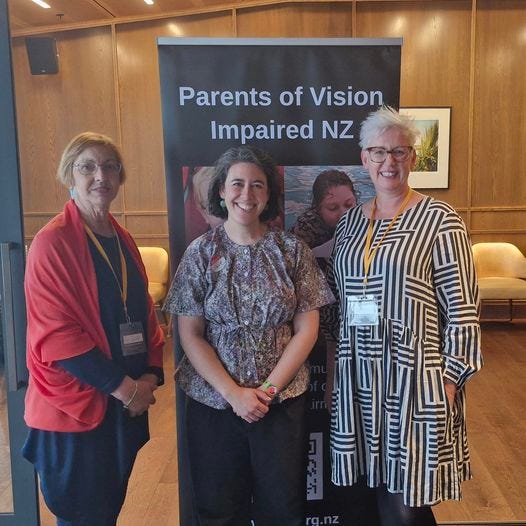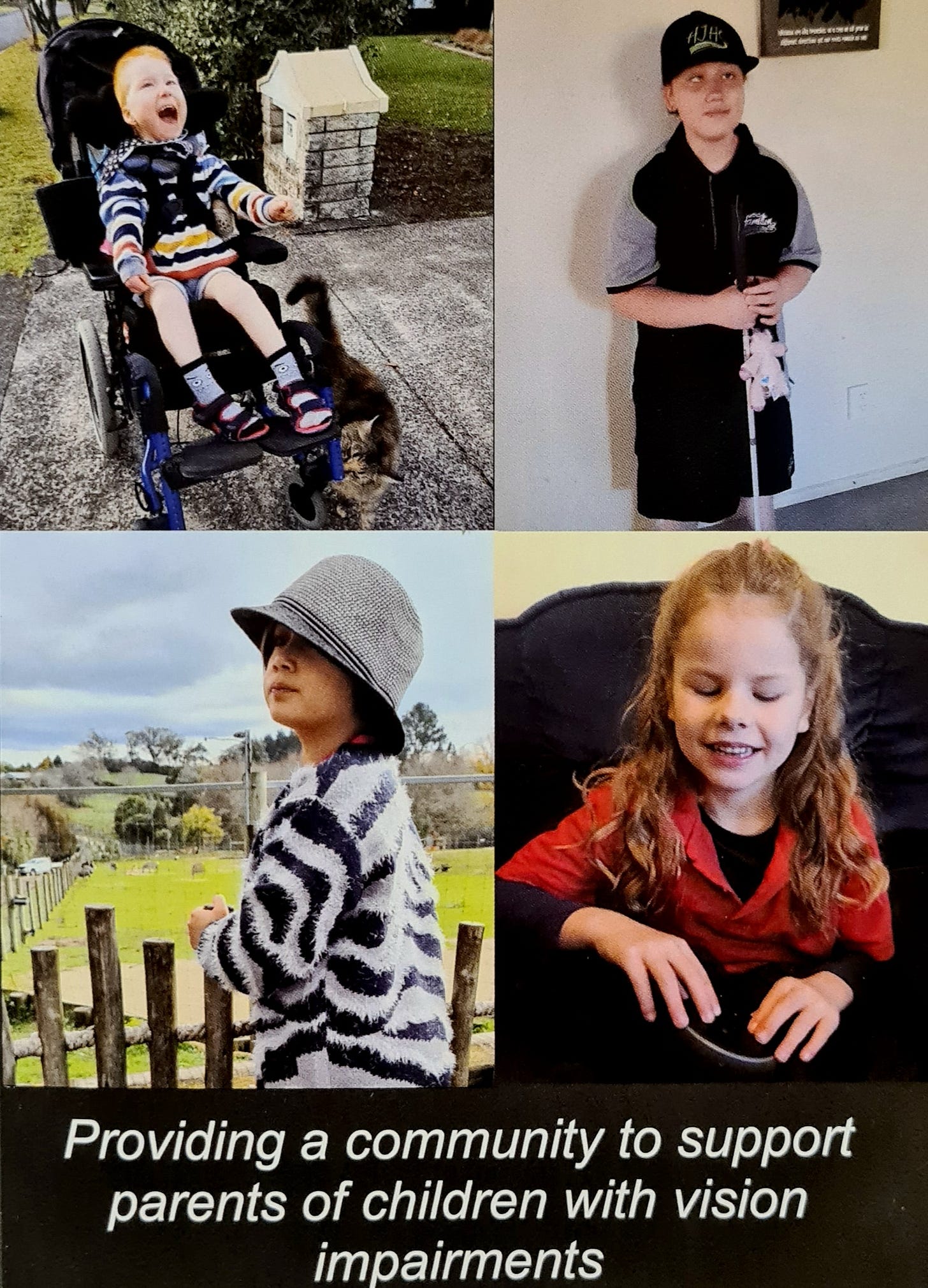On the need for shenanigans
Along with "respite", parents need people to laugh and cry with
Last weekend I had the privilege of attending the Parents of Vision Impaired NZ (PVI) annual parent conference. Over 70 parents from across the country came together for three days of care, respite, laughter, capacity building, and general shenanigans. There is something about finding your people that does wonders for the soul.
This group of down-to-earth, wickedly funny, straight-talking parents have been a key source of support and information for me, ever since they took me into their fold. A stark contrast to the voice at the end of a Blind Low Vision1 helpline which told me, when I first reached out for support post-ophthalmologist visit with our then newborn, “I don’t know what you need us for? Your child seems fine?”

Regular readers will know that, in fact, my child was not fine - and I even less so! Parents from PVI were the ones to welcome me into their fold, introduce me to other parents, and invite me to our first ever parent conference. The rest, as they say, is history.
I still remember our very first PVI parent conference, nearly a decade ago. I remember meeting other parents whose child(ren) had all sorts of vision issues, and whose kids were doing all kinds of amazing things. It was the first time, in over a year of appointments and stress and worry that I felt like maybe, just maybe, things might be alright.
That feeling was transformational; over the years that followed I regularly returned to that feeling to remind myself that it would all be okay.
“Natural supports”
In the wider disability sector, parents remain an invisibility. We are relegated to “natural and community supports” in government policy documents, expected to endlessly provide support and care to the disabled person, and never provided with our own capacity development or professional development in any systematic or intentional way. This is more than ‘respite’ or ‘taking a break’ from caring duties. It is investment into parents and families to intentionally raise the bar and create a good life for all involved.
This lack of investment into families has flow on impacts across the entire life course.
Without a vision for what is possible, or of what a good life for themselves and their child might look like, parents end up sacrificing their own wellbeing for mediocre outcomes (at best).
Without intentional and systematic support, parents remain unaware of available services, how to access them, or what might be possible for themselves and their disabled child. Instead, parents learn to accept isolation, exclusion, and insufficient support as “the norm”.
Without ongoing encouragement from advocates, it becomes too easy to accept the myriad of barriers and associated excuses from overstretched ministries and poorly trained providers. Instead of pushing back against poor service provision and insisting on high quality approaches, we get worn down and simply shrug our shoulders and accept below average outcomes.
Without peers to debrief, laugh, and cry with, our resilience erodes and hope fades.
Creating positive outcomes and good lives for disabled people and families requires more than ‘respite’ from caregiving. It means moving away from relegating families to ‘natural supports’ into developing capacity and providing connection. It requires understanding that our collective well-being is bound up together and worth investing into.
Blind Low Vision have since taken steps to prevent such an occurrence from happening again to any other parent; senior management were horrified to hear of my experience and have done their best to ensure more inclusive practices.


